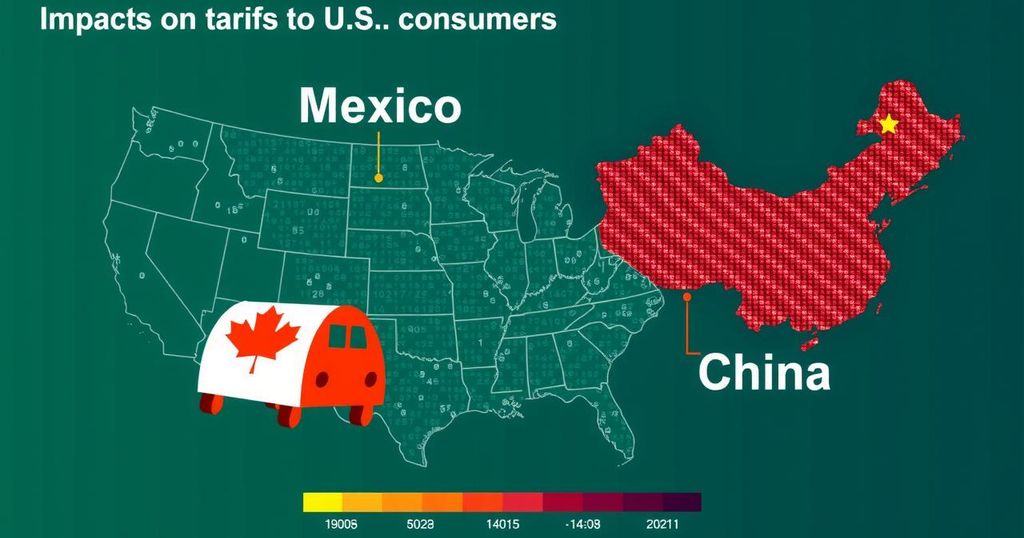Impact of Trump’s Proposed Tariffs on U.S. Consumers: Price Increases Ahead
The proposed tariffs by President Trump on imports from Mexico, Canada, and China could lead to price increases for a variety of consumer goods. These tariffs include a 25 percent increase on Canadian and Mexican goods and a 10 percent increase on Chinese imports. Experts warn that such price surges could drive inflation and significantly affect American consumers, particularly in sectors like energy, automobiles, electronics, and food.
President Trump has proposed significant tariffs on imports from Mexico, Canada, and China, potentially leading to increased costs for American consumers. The suggested tariffs include a 25 percent increase on all goods imported from Canada and Mexico, while China could face an additional 10 percent. Although the intent behind these tariffs is to bolster domestic production and address issues such as crime and illegal immigration, they are likely to result in price hikes for various consumer goods.
The U.S. heavily depends on these three countries for essential imports, including crude oil, vehicles, electronics, and agricultural products. Notably, Canada supplies the majority of crude oil, accounting for 60 percent of U.S. imports, which could lead to higher gasoline prices if tariffs are imposed. Patrick De Haan, an expert on gas prices, indicated that increases in crude oil tariffs could result in significantly higher costs at the pump, affecting consumers directly.
Furthermore, Mexico is the largest source of vehicles and parts for the U.S., making tariff implementations potentially disastrous for the auto industry according to various analysts. In the electronics sector, a considerable share of imports from China comprises items like televisions and smartphones, which would likely see marked price increases.
Agricultural imports are also at risk, with the U.S. spending over $20 billion annually on fresh produce and other horticultural products from Canada and Mexico, raising concerns about further impacts on grocery prices. Meat products, toys, and various raw materials sourced from these countries would also become more expensive due to tariffs, posing additional financial burdens on U.S. households.
The proposed tariffs by President Trump on imports from Mexico, Canada, and China stem from a broader strategy to protect American industries from foreign competition. These countries represent America’s largest trading partners, contributing substantially to consumer goods available within the U.S. economy. The tariffs aim to promote domestic production amid growing concerns about safety and immigration issues. However, economic consequences such as price inflation and supply chain disruptions are a significant concern among analysts and policymakers.
In summary, the proposed tariffs on imports from Mexico, Canada, and China could significantly raise consumer prices in the United States across various sectors, including energy, automotive, electronics, and food. Economic experts warn of rising costs due to increased tariffs, which could exacerbate inflationary pressures already felt by American households. The ripple effect of such tariffs is likely to impact consumers rather than the countries they are aimed at, challenging the initial intent of promoting American manufacturing.
Original Source: www.independent.co.uk








Post Comment